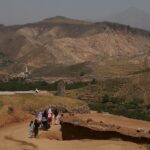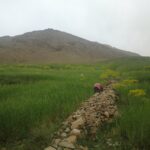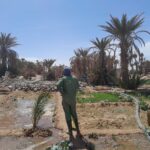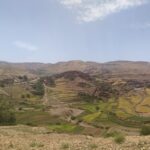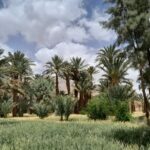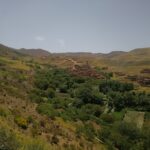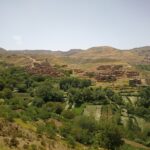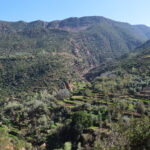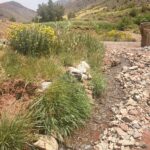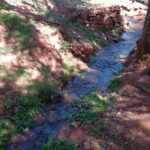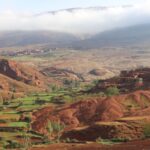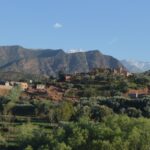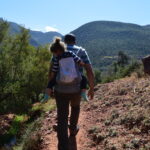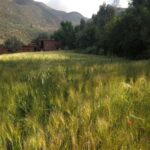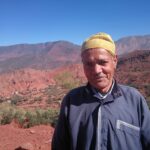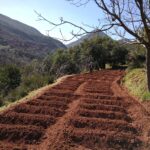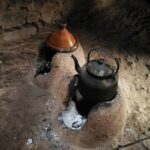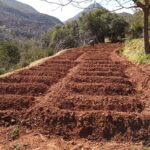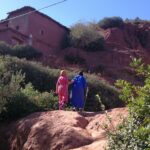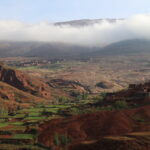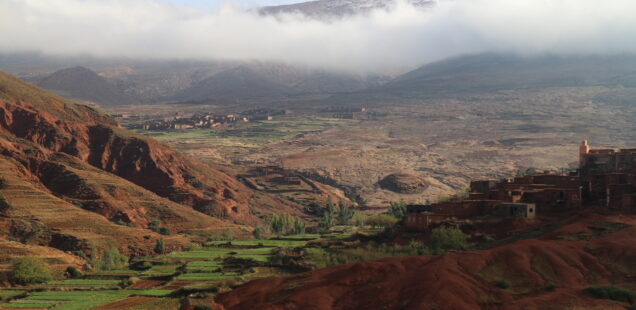
Three Moroccan High Atlas communities are assisted to engage in action-research and act for their desired future, including by advocating for their own policy priorities
This initiative concerns three communities in the High Atlas region of Morocco: two Amazigh communities (Tinmkar and Zat valley) that practice agro-pastoralism along with cash cropping and other livelihood activities, and one oasis-based community in the Draa valley, around Zagora. Rural communities across the Atlas Mountains are generally disadvantaged relatively to lowlands and urban settings in Morocco. They are constrained by limited agricultural land and water resources and have had significantly less access to agricultural extension and infrastructure development. Most people practice agropastoralism— merging animal husbandry with the cultivation of grains, vegetables, fodder, medicinal and aromatic plants, and tree crops on irrigated terraces. The local livelihood strategies and farming techniques vary with water access and elevation.
With the increased attention to the High Atlas communities in the aftermath of the disastrous earthquake of 2023, there are better opportunities for them to forge development paths that celebrate and build upon their traditional knowledge and practices. Indigenous knowledge plays a multidimensional role in supporting community and environmental resilience and has received attention from diverse scholars and international organization for its well-recognized multiple benefits for sustainable land and water management and the conservation of biodiversity. Most importantly, the local communities who live with the land, water and biodiversity employ their indigenous knowledge to continue to live with and of them. Indeed, their survival through the ages— despite the harsh local conditions— is attributable only to their sophisticated indigenous knowledge and their fine capacity to overcome pests, diseases, drought, famine, and many other disasters and threats.
Working with the High Atlas communities to envision their own paths for a sustainable and equitable future, this initiative centres its agency on the traditional knowledge and collective solidarity of the three communities and on their own identified priorities. The communities will learn and network about their own Traditional Ecological Knowledge (TEK) and become more powerful advocates for themselves in policy fora. As a research-action project, this work will also add visibility and ‘authority’ to the community voice through publications.
The initiative involves a variety of facilitated meetings where the three communities will envision diverse possible trajectories for their own sustainable and equitable “social-ecological future”. They will celebrate their collective history and recognize the part that everyone in the community has played for it— the elders and the youth, the women and the men. They will map out their ‘territories of life’ and identify who and in what way has been playing a role in governing, managing and drawing benefits from them, in particular regarding resources such as water, forests and pastures that are better managed collectively, with the care and contribution of everyone in the community. After developing a community consensus on a preferred trajectory for a sustainable and equitable future, the communities will be helped to plan for it, including mapping out what they need and want to do themselves and what they may wish to advocate for with other social actors and authorities, for instance in the case of desired policy intervention.
The initiative dovetails with ongoing work to help communities identify and communicate the topics and kinds of partnership they wish to have with academic institutions, such as the Mohammed VI Polytechnic University (UM6P). This effort is a necessary step towards community-led research approaches in Morocco. The initiative supported by the Paul K. Feyerabend Foundation will contribute to it, as it will also help communities to learn about research ethics, research preparedness and the means to lead future research collaborations. As part of ongoing efforts to set up a community of practice hosted by UM6P, communities will have an opportunity to network with researchers from across Morocco and beyond. TEK, scientific research and community engaged research will thus dialogue to solve pressing social-ecological problems and support resilience of rural communities. Specific additional initiatives and research topics are expected to emerge from initial work, based on community priorities.

